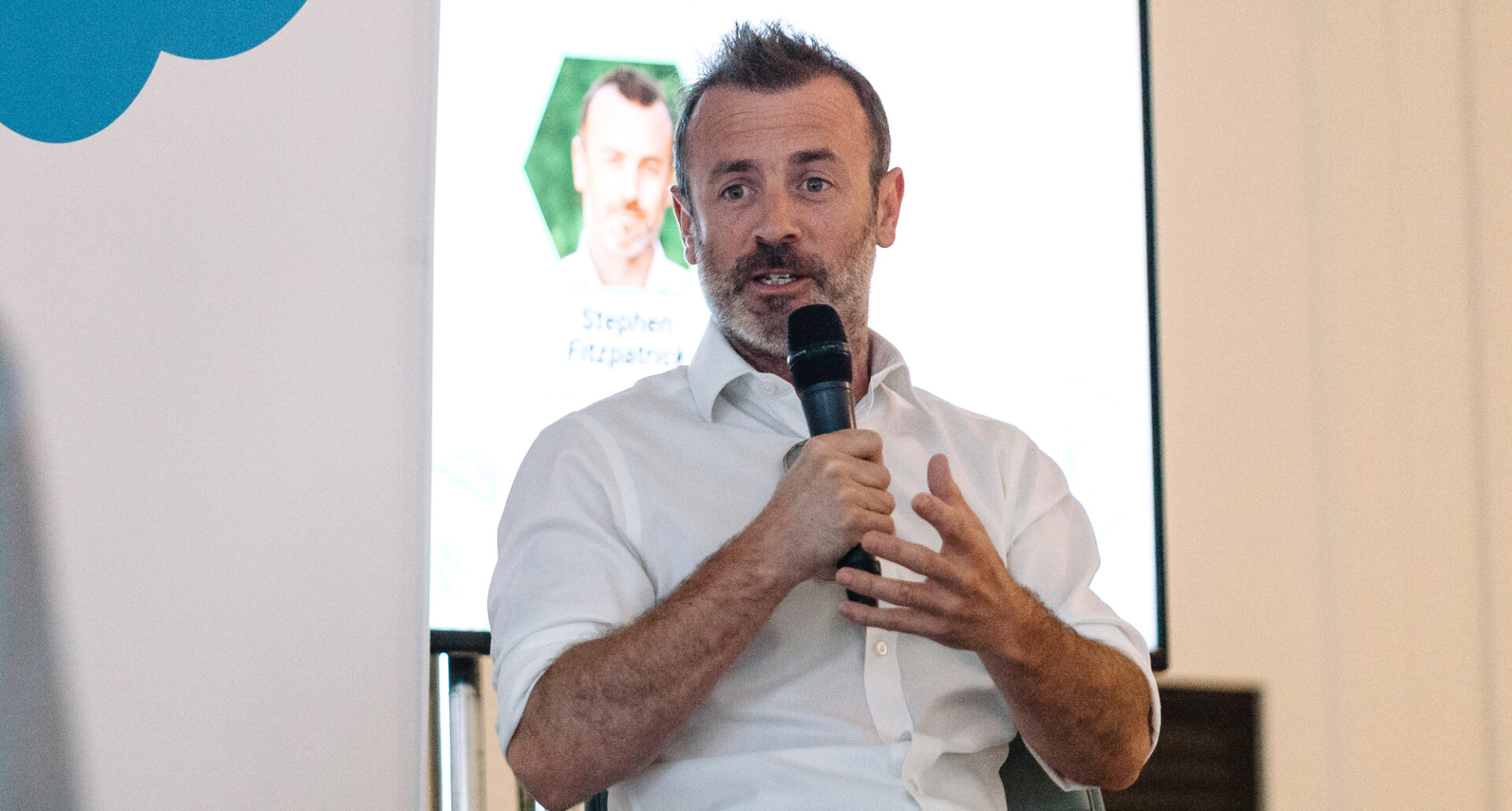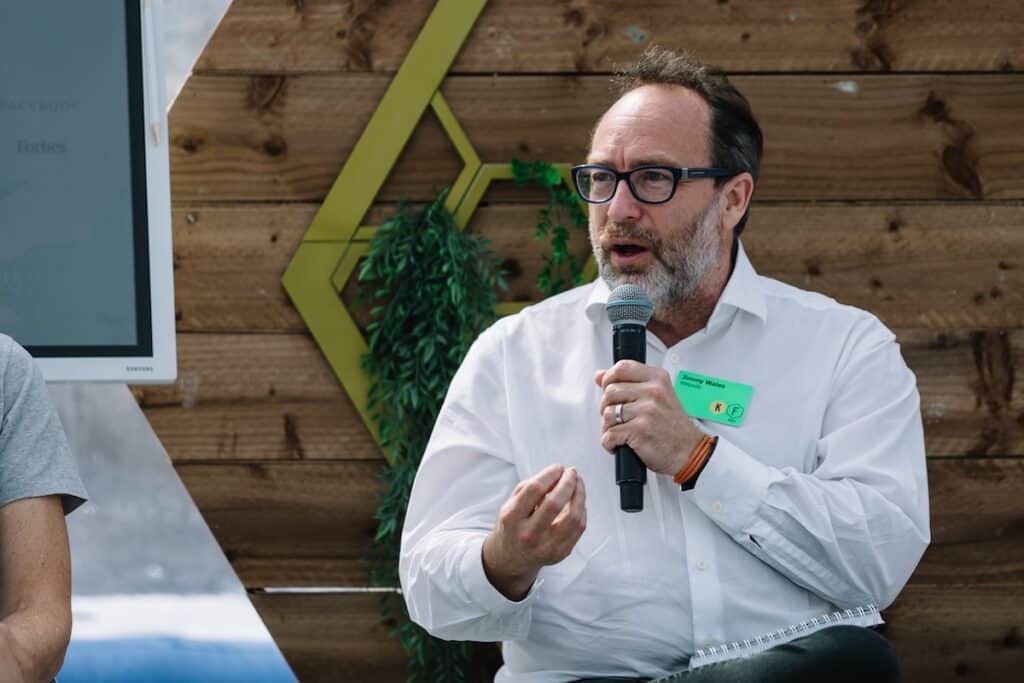Last updated on July 17, 2023
Electric batteries will change the economics of aviation, says Stephen Fitzpatrick, Founder of Ovo Energy and Vertical Aerospace. Read more in our ClimateTech 2023 report.
“We’re going to see a revolution in air transport,” says Stephen Fitzpatrick, the Founder of Ovo Energy, who started Vertical Aerospace to decarbonise air travel with zero operating emissions, electric vertical take-off and landing (eVTOL) aircraft.
In September 2022, Vertical Aerospace completed the first stage of flight tests for its VX4 prototype that it plans to take into production. The VX4 is targeted to be a piloted, five-person aircraft, 100x quieter than a helicopter with a range of up to 100 miles and a cruise speed of 150mph.
While critics claim electric aircraft will be a new way for the wealthy to travel, Stephen says the opposite is true. Electric motors and batteries, he says, don’t require the same development costs and constant maintenance that jet turbines do throughout the life cycle of an aircraft.
“Electric battery technology will change the economics of aviation. Compare the operating cost of our VX4 aircraft to a helicopter, and you’re talking about a 75-80% cost reduction.”
Vertical Aerospace: Electrifying Air Travel
Since listing on the NYSE at a $2.2b valuation in 2021, Vertical Aerospace has received over 1,400 aircraft pre-orders from global customers including AirAsia, American Airlines, and Virgin Atlantic worth over $5b.
In March 2023, it became the first eVTOL aircraft company to receive Design Organisation Approval by the UK Civil Aviation Authority.
“Whether it’s air ambulance services, defence, or passenger transport, zero-operating emissions electric vehicles will be more efficient to fly, quieter, and cheaper to buy and run than jet turbine powered aircraft,” Stephen says.
“By the end of the decade, people will be flying in electric aircraft all over the world.”
The hardware is already there. Now, Stephen plans to extend Vertical’s test flight programme and prepare for certification in 2026.
“In hardware, you need to stay focused on your core tech, and invest in your IP and competitive advantage, rather than spreading yourself too thin,” he explains.
“Iterate and learn by doing. Our aircraft has 18,000 components, and 4,000 of them are individually designed, but we’re always experimenting and upgrading to improve performance.”
Stephen Fitzpatrick: Advice For ClimateTech Founders
Stephen’s advice for founders building climate tech companies? Be pragmatic.
“Founders often have a clear and pure vision of what they want to build. But schemes we have in Europe to incentivise investment in small startups don’t scale to the numbers you need to build successful energy transition companies.
“Large corporations have VC arms that look for strategic synergies. If you can balance your initial vision with providing something valuable to an investor, that’s going to really help.
“Be capital efficient, partner where you can, and find ways to demonstrate your success milestones, with test runs or prototype products, that help derisk your next phase of investment.”
Download our ClimateTech 2023 report for insights from top climate tech founders. Plus, discover the 23 European climate tech startups to watch!
 All Posts
All Posts


